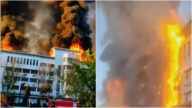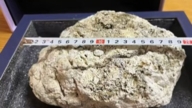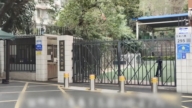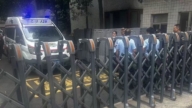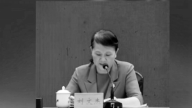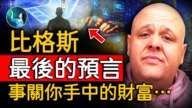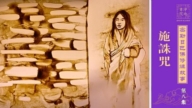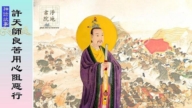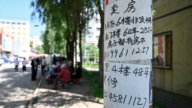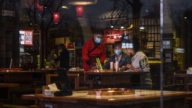【新唐人2011年6月9日讯】今年敏感的“六四”前后,大陆毒食品、暴力拆迁、司法枉法、干旱天气、基层选举被阻,天灾人祸,令民间不满情绪更加严重。作为喉舌的官方媒体,稍有差错,都可能招来严厉处罚。因此,这段“敏感时期”,媒体主管没有人愿意坐堂签版,怕中共秋后算账、追究责任,只好抽签决定。请看报导。
今年是“六四”22周年,又逢“辛亥百年”,和中共暴力夺取政权90周年,在这“敏感时期”,中共持续高压管控,令一些传媒主管更是忌惮,担心涉敏感新闻或图片出街,自己被追究责任。
北京资深媒体人高瑜女士表示,中共一直让人们淡忘“六四”,所以很多年轻人不知道“六四事件”!可是,有一些编辑,报导了“六四”方面的信息,或者是被主管忽视,结果“六四事件”出现在中共媒体上。
高瑜(北京资深媒体人):“我总觉得最重要的还是主管,现在的记者呢,你说他有一些,是坚持普世价值的,坚持一定要为六四平反的,很多传媒人已经都被处理了,一波一波的,从六四到现在,每年都要处理,我们就是89年就被处理了! ”
香港《明报》报导,较早前南方一份报章刊登声援艾未未的社评,就是有关主管审阅时,只认为文中深情的表达了对地震死难者的悼念,并没有看出字里行间的“曲笔反骨”,得以放行出街。事后被问责时,相关主管喊冤说,自己既接触不到外界信息,文章字面上也没有露骨表述,监察很难做到无漏网之鱼。
媒体记者莫巨烽表示,在大陆,新闻控制的非常严重,特别是一些大的活动和节日,当地的公安部门经常警告,不允许登出所谓“负面消息”。不过有些记者站在道义角度,还是想办法把消息发了出去。
莫巨烽(中国媒体记者):那些记者也有发那些敏感的消息的,通过特殊的渠道发出去,因为很多记者很反对它们(中共)这种独裁的政权。”
原《百姓》杂志主编黄良天认为,大陆所谓的媒体,其实是中共的宣传工具,是中共的阵地。作为一个阵地,实际上没有什么控制不控制,只能是接受。他说,作为大陆媒体的一个“主编”,就是一个阵地的哨兵,上级让你去干那些你不愿意干的事情,你不听的话,可能会被调离岗位,再不就是把你枪毙了。
黄良天(原《百姓》杂志主编):“你要想说真话,你就得准备牺牲,这种牺牲是巨大的。真的做好一个主编,做一个有良心的主编,真正的主编是很困难的。你就得准备牺牲自己。”
今年是中共夺取政权90周年,中国出现的经济问题和政治问题越来越多。高瑜女士说,22年前的“六四事件”,就是民众要中共改错,但中共用武力镇压,现在,中共为什么要把毛泽东立为正宗,因为,否定毛泽东,中共的合法性就没有了。
高瑜:六四是个分水岭—-就是中国你走什么道路?原来(六四)要改革,就是要中共改错,你供着毛泽东所犯的错我们得改过来,我们向人民赎罪,六四就决定了它们走的这种权贵资本主义道路,所以这个问题,将来六四问题是越来越大!”
《法国国际广播电台》报导,在六四前后,仍有很多大陆博客和网民或以直接或以隐晦的帖文,透过新浪微博抒发对22年前六四死难者的悼念,但很多都被网主很快的删掉了。
新唐人记者梁欣、唐睿、吴慧真、采访报导。
Panic-Stricken Chinese Media
Tainted food, forced demolitions, unjust verdicts,
droughts and intervened elections all took place
during the “sensitive period” around June 4,
intensifying the public discontent in China.
Media controlled by CCP (Chinese Communist Party)
are walking a fine line under public scrutiny.
Out of fear of CCP’s future punishments,
the media professionals try to shun responsibilities.
June 4 is the 22nd anniversary of Tiananmen Massacre;
the 100th anniversary of Xinhai Revolution is in Oct;
and the CCP will turn 90 years old in July.
CCP tightened media control in this sensitive period.
Management of many media companies is in fear
of being punished for publishing sensitive news.
Beijing-based senior media reporter Gao Yu said,
as the CCP heavily censors the Chinese media,
many youth never heard of Tiananmen Massacre.
However, as some articles are overlooked by editors,
info about Tiananmen has appeared on CCP media.
Gao: I think media directors are of vital importance.
Some reporters pursue universal values,
and they call for redressing the Tiananmen Movement.
They have been dismissed without exception.
We were dismissed in 1989.
Hong Kong’s Ming Pao reported that
a newspaper’s editorial supported Ai Weiwei.
When reviewing the article, the editor only saw
Ai’s mourning of quake victims, not his disobedience.
After article’s publication, the editor was punished.
He pleaded innocence as there were no explicit words
and he was unaware of the sensitive situation.
Reporter Mo Jufeng said, during sensitive periods
or festivities, local police often warn the media
to not publish any so-called “negative news”.
However, some reporters with a conscience,
still made an effort to publish the news.
Mo Jufeng: Some of the reporters cautiously publish
sensitive news via special channels,
because they do resent the CCP’s dictatorship.
Ex-chief editor of Baixing magazine, Huang Tianliang,
notes that most Chinese media are CCP’s mouthpiece.
The Chinese media can only accept what they are told.
An editor-in-chief in China is a sentry, who must do
what his boss asks him to do, against his conscience.
If he doesn’t obey, he would be fired or punished.
Huang Tianliang: If you want to speak the truth,
you must be prepared to lose your life.
It’s a big sacrifice.
Being an editor with conscience is never easy.
You must be prepared to sacrifice yourself.
Political and economic problems continue to increase.
Gao Yu said, during Tiananmen Movement in 1989,
the public demanded CCP to correct its mistakes.
Instead of changing, the CCP cracked down on them.
That is why CCP today upholds Mao Zedong,
for if Mao gets denied, CCP would lose its legitimacy.
Gao Yu: Tiananmen Massacre was a turning point
for CCP, when the public asked for a political reform.
People wanted to rectify Mao’s mistakes and crimes.
CCP opted for the path of privileged capitalism
after the massacre, which is an issue that will get worse.
According to RFI, before and after June 4,
many Chinese netizens expressed their mourning
to victims of Tiananmen Massacre with blog posts,
most of which were deleted soon by Internet monitors.
NTD reporters Liang Xin, Tang Rui and Wu Huizhen




